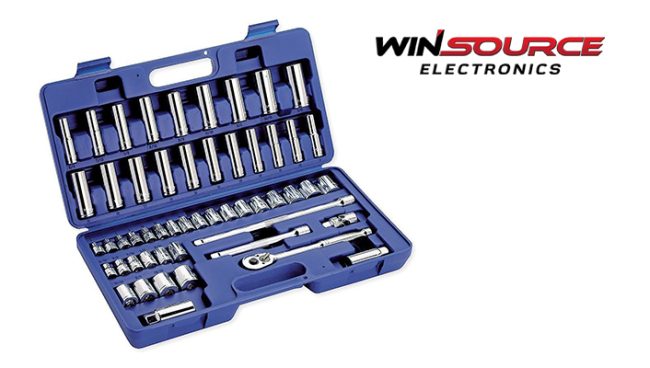
Choosing the right supplier for industrial tools and equipment significantly influences the efficiency and success of your operations. This article discusses the crucial aspects to consider when selecting a supplier, emphasizing the importance of quality, reliability, pricing, product range, technical support, and reputation. Additionally, it highlights the value of certifications and a solid warranty and returns policy to ensure high-quality products and reliable service.
Identifying Your Specific Requirements
Assessing Your Industry Requirements
In the first step towards selecting the right supplier for industrial tools and equipment, one must thoroughly assess the specific requirements of their industry. This involves understanding the unique challenges and needs of the operational environment. Factors like the nature of materials handled, the scale of operations, and the industry’s regulatory standards play a crucial role in defining what tools and equipment are apt for the job.
Evaluating Tool Quality and Performance
Once the industry-specific needs are outlined, the focus shifts to evaluating the quality and performance of tools and equipment. This process is pivotal, as the efficacy of these tools directly impacts the efficiency and productivity of operations. Potential buyers should consider tools’ precision, capability, and technological advancement. It’s also prudent to compare different brands and models to ascertain which ones offer the best balance of quality and cost.
Considering Tool Lifespan and Durability
Lastly, considering the lifespan and durability of tools is crucial. Industrial environments often pose harsh operational conditions, and tools need to withstand these without frequent need for replacement or repair. Durability not only ensures uninterrupted workflow but also offers long-term cost savings. Therefore, investing in tools that promise a longer lifespan, even if they come with a higher upfront cost, can be more economical in the long run.
Researching Suppliers
Exploring Product Range
When choosing a supplier, exploring their product range is paramount. Suppliers such as WIN SOURCE, known for their comprehensive database, including Westward Specialty Tools, demonstrate the ability to cater to various industrial needs. This diversity in offerings is crucial for ensuring that all specific tools and equipment requirements can be met under one roof.
Analyzing Customer Reviews and Feedback
Evaluating customer reviews and feedback is an insightful way to gauge a supplier’s reliability and quality of service. These testimonials offer real-world insights into the supplier’s product performance, customer service efficiency, and satisfaction. A positive feedback pattern strongly indicates a supplier’s competence and commitment to quality.
Comparing Prices and Value
Finally, comparing the prices and overall value of different suppliers is critical. This involves looking at the upfront costs and considering the long-term value, including factors like durability, warranty terms, and after-sales support. A supplier that offers competitive pricing, high-quality products, and excellent service provides the best value for investment.
Assessing Supplier Reliability and Service
Evaluating Delivery and Supply Chain Efficiency
Evaluating a supplier’s delivery and supply chain efficiency is crucial to determining their reliability. This involves scrutinizing their ability to meet delivery deadlines, maintain product quality during transit, and handle logistics to minimize delays. An efficient supply chain indicates a supplier’s capability to meet customer demands consistently in a timely fashion.
Considering Customer Support and Service
A supplier’s level of customer support and service is a key determinant of their reliability. This encompasses their responsiveness to inquiries, ability to provide technical support, and efficiency in resolving issues. Suppliers with a solid commitment to customer service often have established protocols to assist clients swiftly and effectively.
Checking for Authenticity and Warranty
Lastly, checking for product authenticity and warranty terms is essential. Authentic products, backed by warranties, assure quality and offer recourse in case of defects. Suppliers who provide comprehensive warranties and authenticate their products demonstrate confidence in their offerings and a commitment to customer satisfaction.
Supplier Financial Stability
A supplier’s financial stability is critical in determining their reliability and service quality. This evaluation is more than a mere fiscal analysis; it indicates the supplier’s ability to sustain operations, manage risks, and invest in quality improvements. Financially stable suppliers will likely be more consistent in their service delivery, maintain stock availability, and be resilient during market fluctuations. This stability ensures a continuous supply chain and mitigates risks for your business. Hence, understanding a supplier’s financial health is fundamental in securing a reliable and long-term partnership for industrial tool and equipment procurement.
Making the Final Decision
Balancing Quality with Cost
Balancing quality with cost is critical when finalizing a supplier for industrial tools and equipment. This involves an understanding that the least expensive option may only sometimes provide the best value in the long term. Evaluating the trade-offs between price and quality ensures the investment aligns with immediate and future operational needs.
Considering Long-Term Relationships
Another vital aspect is considering the potential for long-term relationships with the supplier. Suppliers willing to adapt and grow alongside your business can be invaluable assets. Long-term partnerships often lead to more favorable terms, a better understanding of needs, and a mutual commitment to success.
Reflecting on Company Values and Ethics
Finally, aligning with a supplier whose values and ethics resonate with your company’s ethos is imperative. This includes their approach to sustainability, corporate social responsibility, and ethical practices in business operations. A partnership with a supplier whose values align with your own can enhance your company’s reputation and ensure a harmonious business relationship.
Choosing the right electronic components distributor is vital in your pursuit of excellence. To prevent the unavailability of parts from hindering your progress, trust WIN SOURCE for reliability and efficiency. Visit us today to explore our extensive product range and experience a purchasing journey that sets new standards in the electronic component industry.

COMMENTS